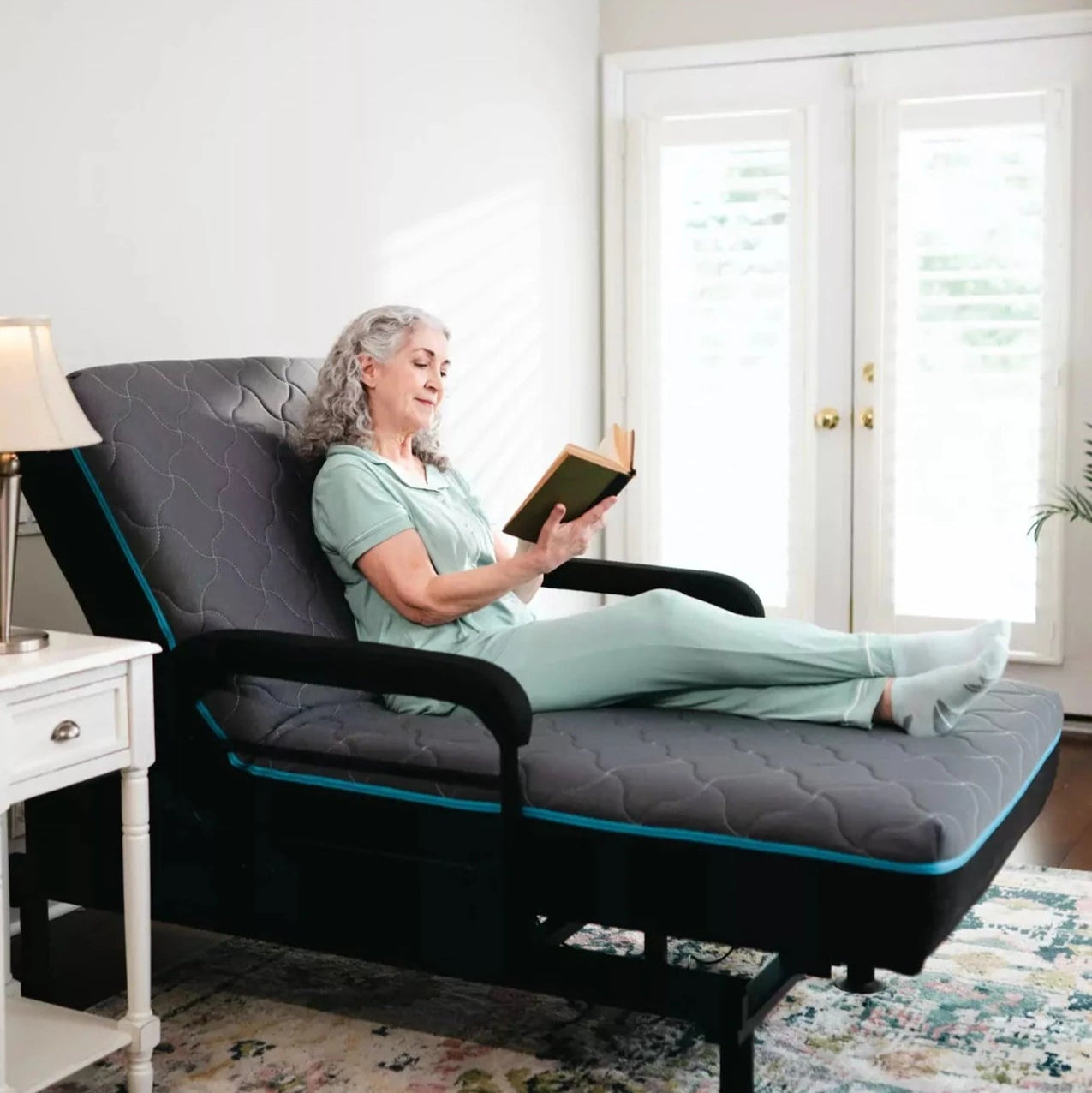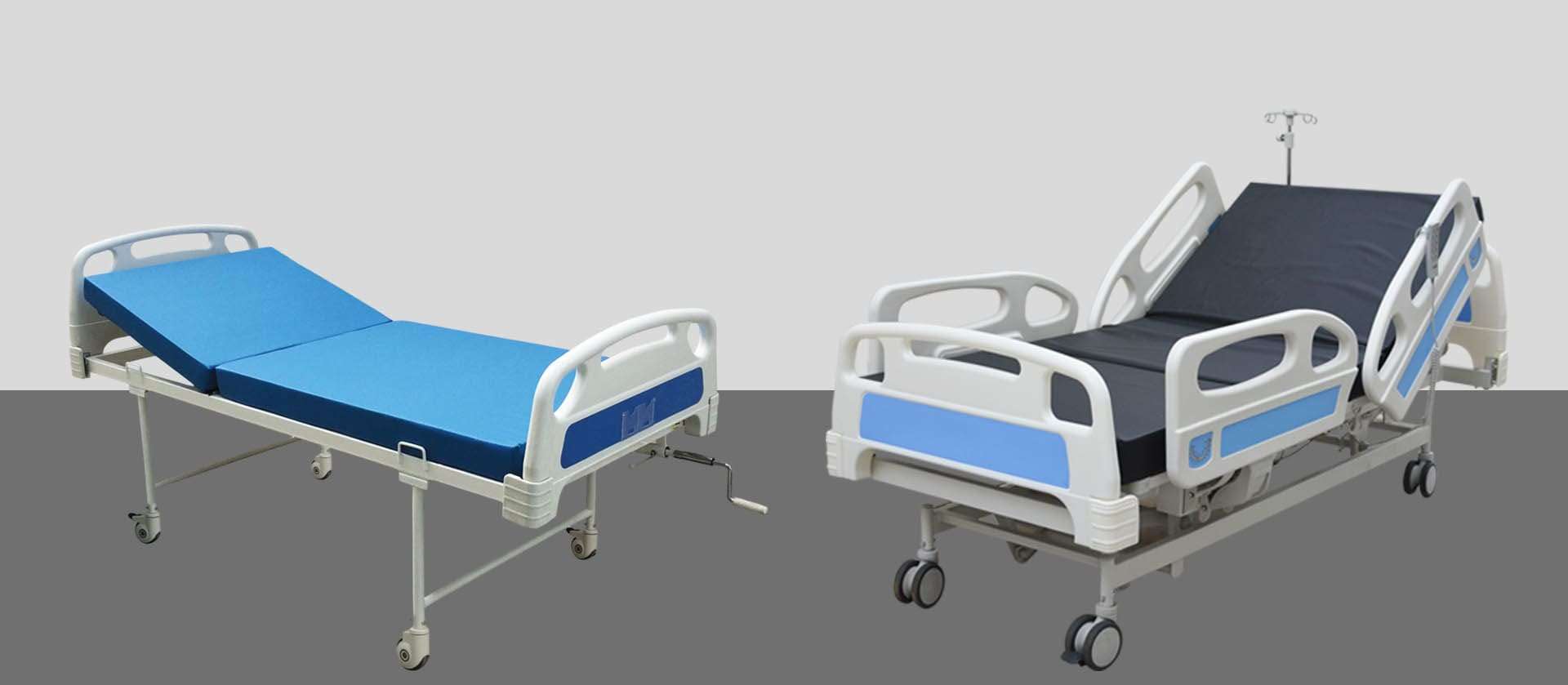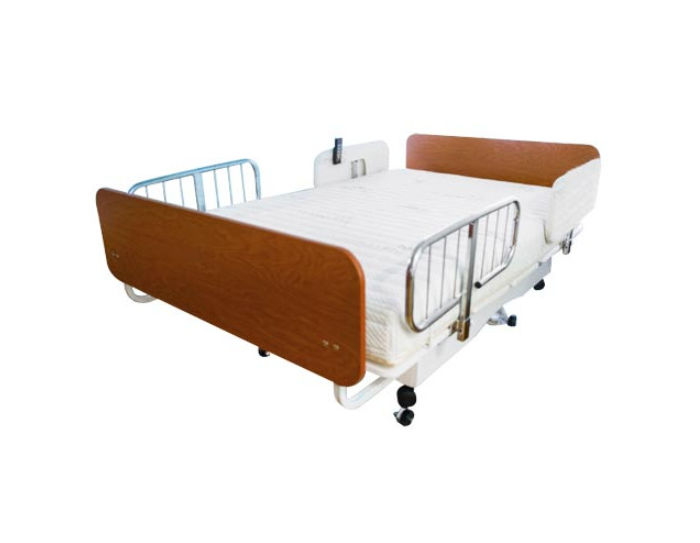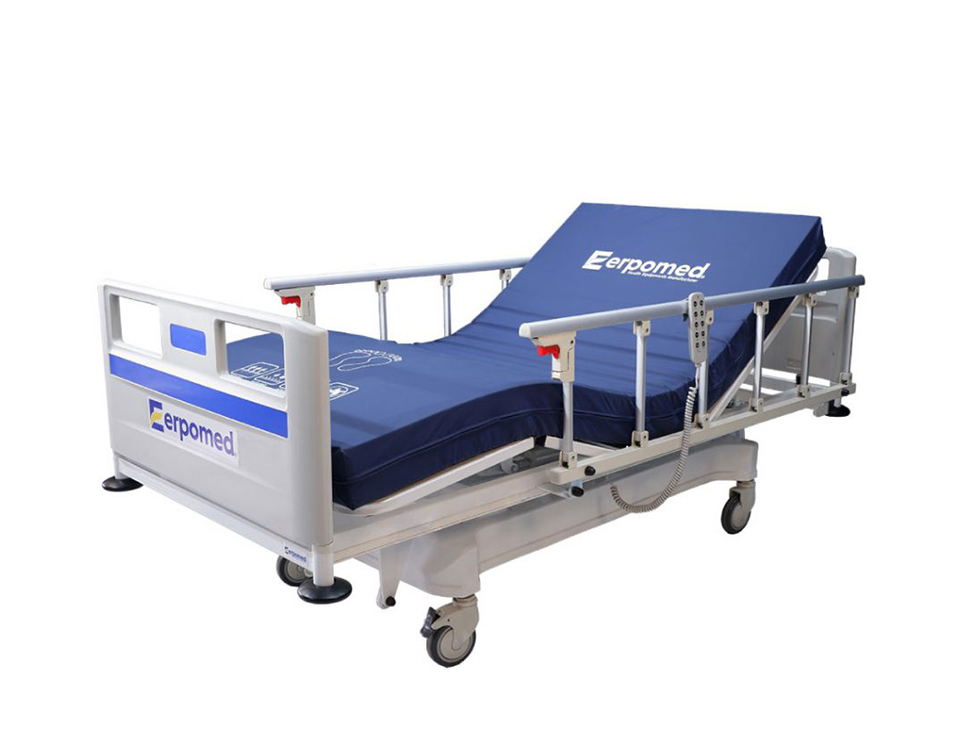Hospital Beds For Home Use - The Facts
Hospital Beds For Home Use - The Facts
Blog Article
The 5-Minute Rule for Hospital Beds For Home Use
Table of ContentsSome Known Details About Hospital Beds For Home Use Little Known Questions About Hospital Beds For Home Use.The Basic Principles Of Hospital Beds For Home Use The Buzz on Hospital Beds For Home UseThe Buzz on Hospital Beds For Home UseFacts About Hospital Beds For Home Use UncoveredNot known Details About Hospital Beds For Home Use
There are 3 primary kinds of health center beds: manual, semi-electric, and fully-electric. Even more kinds of clinical beds exist and they are detailed below. These beds use hand cranks to adjust the bed's elevation and increase and reduce the head and the foot. Hand cranks are normally located at the foot of the bed and call for a person that is literally efficient in operating.
Semi-electric beds have an electric motor to raise and lower the head and foot parts of the bed. Individuals and caregivers adjust the placing by pushing buttons making use of a hand necklace. The elevation of the bed is adjusted manually with a hand crank. Full-electric beds have an electrical motor that can raise the head and foot sections of the bed in addition to the whole elevation and positioning of the bed.
Some Of Hospital Beds For Home Use
There are several types of hospital beds, each designed to satisfy details individual needs. Right here are some usual types: This is the most typical kind of healthcare facility bed, made for general clinical use.
Reduced to the ground than a common bed. This sort of bed is developed for larger people, with a wider framework and greater weight capability than a basic bed. This sort of bed is designed especially for kids, with smaller sized dimensions than a conventional bed. Unique features such as full length side rails and animation design.
This sort of bed is designed for critically sick individuals who require open tracking and specialized medical equipment such as ventilators and infusion pumps. This sort of bed is designed for usage throughout labor and distribution, with flexible positions and features to support the mother and child during the birth process.
Some Known Details About Hospital Beds For Home Use
Several feature and the devices carry out increasing grip to different components of the vertebra and the extremities without moving the human body. These are simply a couple of examples of the kinds of medical facility beds available. The details kind of bed used will depend on the person's condition, clinical needs, and other variables.
Right here is things you need to know. A one-function health center bed is a medical bed that permits a patient to relocate only the head or foot area up or down. A 2 function medical facility bed usually refers to a kind of clinical bed that has two flexible functions to aid clients in health centers or care centers.

Getting My Hospital Beds For Home Use To Work
A 7-function ICU bed is a sort of clinical bed that provides a number of flexible functions to sustain critically unwell individuals in a critical care unit (ICU) (hospital beds for home use). The seven functions usually consist of: Back-rest modification: The back-rest can be adapted to various angles to help the client sit up or lie down pleasantly
Height modification: The bed can be raised or lowered to make it less complicated for patients to get in and out of bed, and for caretakers to give treatment. Trendelenburg position: The entire bed can be tilted to advertise blood circulation and blood circulation in the body. Reverse Trendelenburg setting: The see this page bed can likewise be tilted in the contrary direction to promote blood circulation and blood circulation in the top body.
1. What Size is a Hospital Bed? 2. Just how Much Does a Health Center Bed Expense? 3. Why Do Health Center Beds Have Side Bed Rails? 4. What Are The Main Medical Facility Bed Parts?. While even more affordable than electrical designs, these beds require exertion for More Bonuses changes. The main benefits of hands-on beds are their cost and reliability, as they do not rely upon electricity. The requirement for hands-on effort can be a constraint in circumstances where fast modifications are necessary or where caregivers encounter physical challenges.
Some Known Incorrect Statements About Hospital Beds For Home Use
Semi-electric health center beds supply an equilibrium of guidebook and electrical controls. These beds provide a perfect middle ground between manual and fully electric options, offering convenience of usage without the complete price of electrical designs.
Semi-electric beds are appropriate for people that need moderate adjustments to the head and foot areas yet can handle without regular height adjustments. This makes them a cost-effective solution for those looking for comfort and benefit without the requirement for constant repositioning. Totally electrical medical facility beds feature electric controls for smooth modifications to the height, head, and foot areas.
Specialty medical facility beds, such as ICU beds, long-term treatment beds, and bariatric beds, are carefully created to attend to particular clinical demands. These beds offer customized take care of varied person teams, improving both end results and comfort. wikipedia reference In the complying with areas, we will certainly explore the primary kinds of specialized healthcare facility beds, outlining their details benefits and applications.
With years of experience in making electric straight actuators - hospital beds for home use and close partnership with the medical care market, TiMOTION is well-positioned to supply dependable medical care services. Our up and down integrated firm handles every step of the production procedure, from design to actuator setting up, ensuring we provide remarkable worth and customized options tailored to your specific requirements
What Does Hospital Beds For Home Use Mean?

To read more concerning integrating these modern technologies into your items, contact us today. More reading:.
Data is sourced from the Medicare Price Report. Accessed January 2025. Temporary severe treatment healthcare facilities have the highest typical variety of beds at 187. They are the most common kind of hospital in the united state and compose greater than 50% of U.S. healthcare facilities. Children's medical facilities have 178 beds on standard and VA medical facilities average 175 beds.

Examine This Report on Hospital Beds For Home Use
A medical facility bed is a bed made particularly for medical objectives. It is not only a place for clients to rest, however also a platform for medical procedures. Unlike ordinary home beds, healthcare facility beds typically have adjustable features, which can promote clinical staff to make different adjustments according to the requirements of individuals, such as altering the height, disposition, and assistance angle of the back and legs of the bed.
Report this page